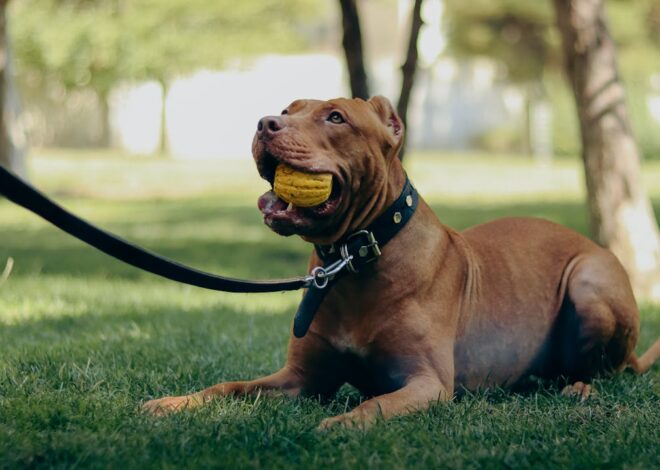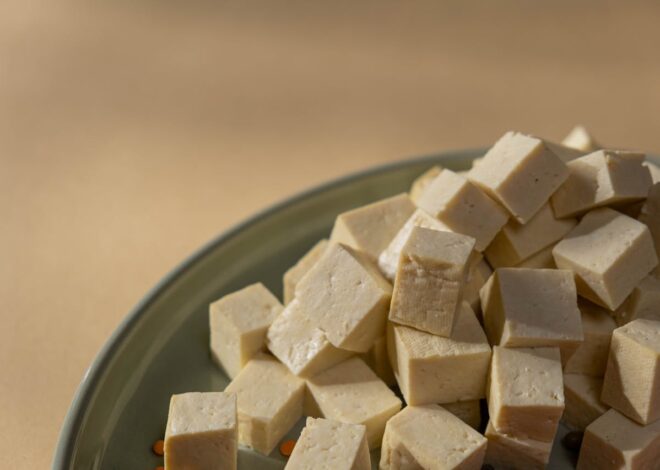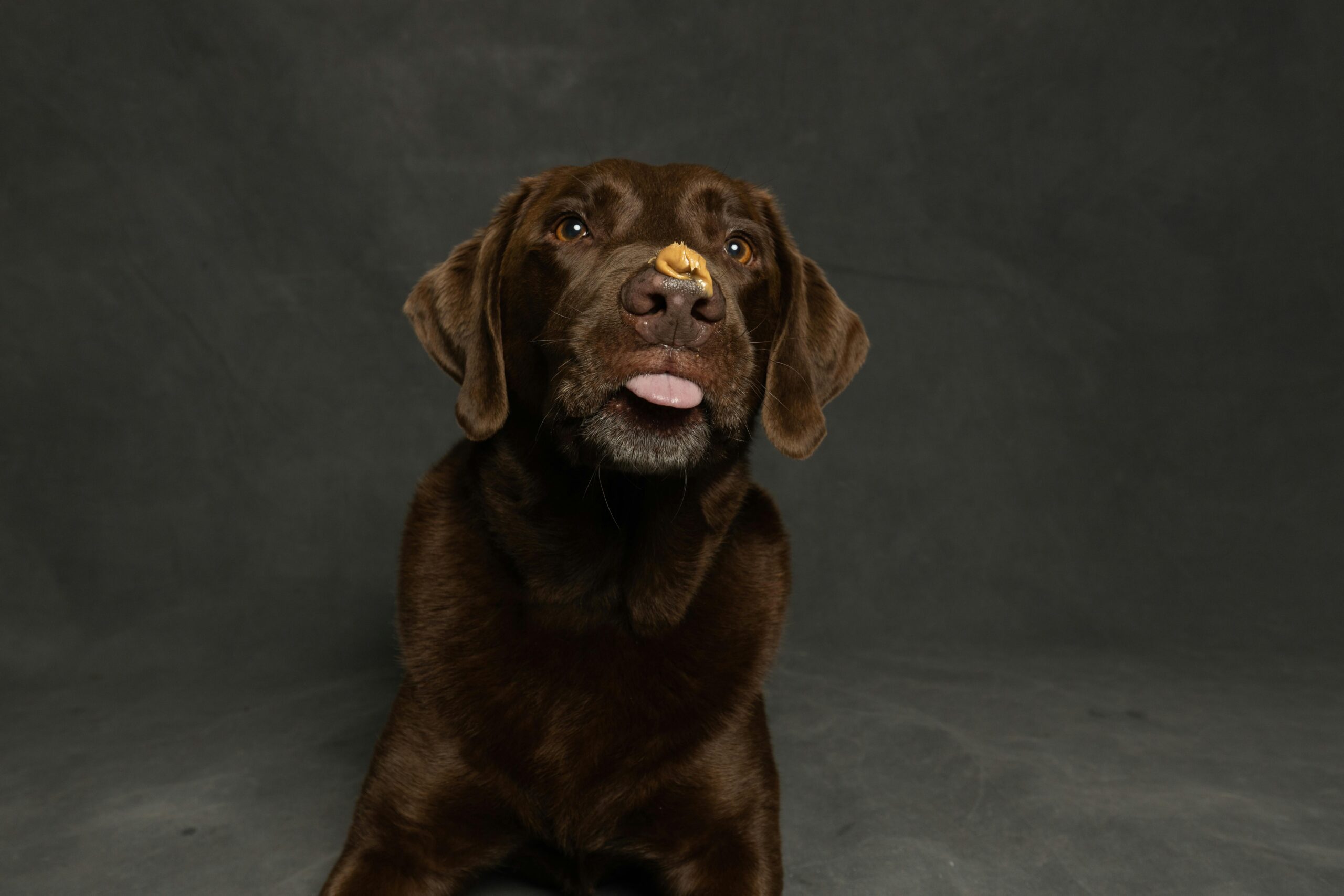
Can Dogs Eat Peanuts? A Complete Pet Parent’s Guide
Peanut Butter for Dogs: Safe Treat or Health Hazard?
Table of Contents
- 1 Peanut Butter for Dogs: Safe Treat or Health Hazard?
- 1.1 Can Dogs Eat Peanut Butter? Understanding the Risks & Benefits
- 1.2 Brand Check: Skippy & Jif – Dog-Friendly or Not?
- 1.3 Xylitol Dangers: The Silent Peanut Butter Threat
- 1.4 Peanut Butter Health Benefits for Dogs: A Nutritional Boost
- 1.5 Portion Control: Moderation is Key with Peanut Butter
- 1.6 Peanut Butter Side Effects & Precautions: Protecting Your Dog
- 1.7 Allergies & Sensitivities: Recognizing Warning Signs
- 1.8 Creative Ways to Serve Peanut Butter: Fun & Safe Ideas
- 1.9 Homemade Peanut Butter Dog Treats: Healthy Recipes
- 1.10 Peanut Butter & Dogs FAQs: Your Top Questions Answered
- 1.11 Peanut Butter for Dogs: A Safe Treat When Used Wisely
Peanut butter is a household item. It is a tasty spread that is full of protein and healthy fats.
Can Dogs Eat Peanut Butter? Understanding the Risks & Benefits
The answer is not clear-cut. However, not all types of peanut butter are created equal in terms of safety for dogs. Some brands contain xylitol, an artificial sweetener toxic to dogs. This potential risk underscores the importance of caution and responsibility when feeding your furry friend.
You even have to look at big names like Skippy and Jif before giving them to your pet. This guide will explore the world of dogs and peanut butter.
Keep reading to discover which brands are safe for your pooch, the health benefits and risks of feeding your dog peanut butter, and how to creatively incorporate this treat into your dog’s diet. If you are a dog owner, ask, “Can my dog eat peanut butter?” Then you’ve come to the right place. Let’s get started.
Peanut butter is not merely an appetizing morsel in the dog’s mouth; it’s very nutritious for any pup when chosen correctly. Like any treat, you must know a bit about it before giving it to your pup.
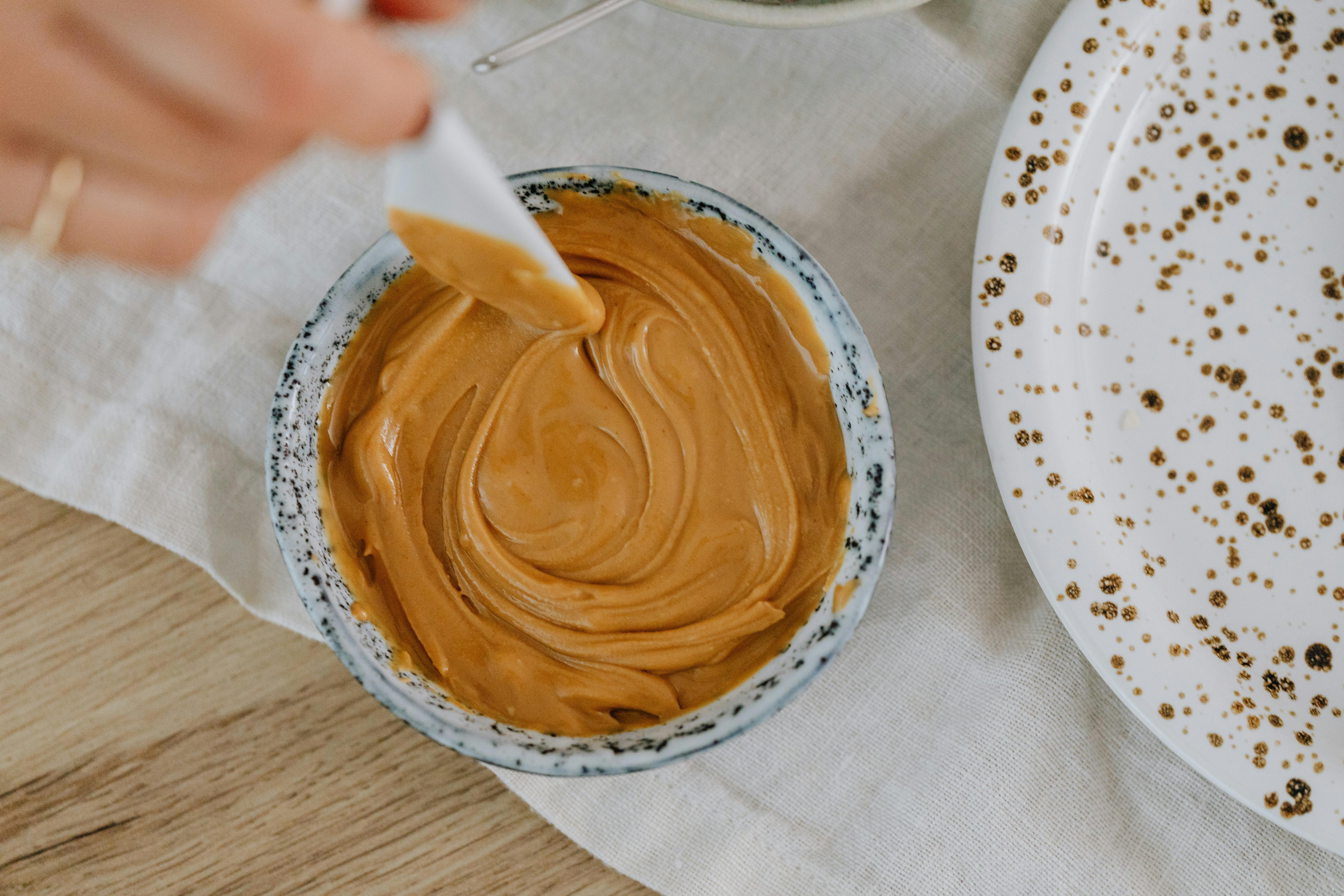
Remember, moderation is key when it comes to feeding your dog peanut butter. This emphasis on responsible feeding can make you feel considerate and mindful of your pet’s health.
However, not all peanut butter is equal in some aspects. Some may contain substances that prove harmful to dogs. The primary concern could be xylitol, a sugar substitute deadly to your pets. Other potential risks include obesity due to the high-fat content and digestive issues if the peanut butter contains added sugars or preservatives.
Before sharing peanut butter with your pooch, always read the label. This simple act of checking for harmful additives can significantly improve your dog’s health, empowering you to make informed and proactive decisions.
Used wisely, peanut butter can be a powerful tool for promoting good behavior in your dog. Whether it’s as a reward or a clever way to administer medication, peanut butter can be a delicious and effective solution.
For your safety and that of your dog, choose a brand free from xylitol, don’t use it as a meal replacement, and monitor serving sizes to prevent overindulgence.
Armed with these crucial facts, you can ensure the experience is safe for your dog.
Brand selection for peanut butter that is safe for dogs is an immense task. There are too many options. Hence, aiming for the ideal peanut butter starts from checking the ingredient list.
Ensure no brands contain xylitol in peanut butter or other commercial products. Even in small doses, it can be very hazardous for dogs. Get essential brands that promote transparency and quality.
Natural and organic peanut butter is a fancy product that claims to have fewer additives. It is a healthier alternative than standard brands. Because it does not contain added sugars or salt, it delivers a big push on lowered intake.
Then there’s the fat content that must also be duly considered. Though fats might be beneficial only if consumed within limits, excess consumption can lead to puffiness. Peanut butter must not be treated so daily.
Avoid artificial flavorings or preservatives. They pose unnecessary health risks to your pet. Real, simple-natured ingredients are, hence, the ultimate safety solution.
Consulting reviews and vets may help you make your selection. They will usually point out tested brands and those that build trust among pet owners.
If you’re ever confused, look for peanut butter products designed specifically for dogs. They contain safe ingredients for dogs to consume and should ease any worries for concerned parents.
Finally, a quick and careful checking of ingredients can help prevent potential mishaps and guarantee a safe treat for your dog.
Brand Check: Skippy & Jif – Dog-Friendly or Not?
Skippy and Jif are popular household names. Creamy texture and assorted uses have made it a house powder. But are they safe for dogs? Both peanut butter types are available in Skippy and Jif brands with no xylitol. These might be given to dogs in moderation if they’re xylitol-free. Still, to be on the safe side, double-check the label. While these brands are generally safe, opt for varieties with fewer added ingredients. That minimizes the risk of inadvertently exposing your pet to potential allergens or additives.
Xylitol Dangers: The Silent Peanut Butter Threat
When it comes to poison, many dog owners regard xylitol with dread. Found in some types of peanut butter and other products, this sugar substitute can be deadly for dogs, even in small amounts. It causes a rapid release of insulin within dogs upon consumption, resulting in sudden hypoglycemia, which is a severe drop in blood sugar. This can be fatal without early attention. Xylitol poisoning symptoms can develop within a span of 10 to 60 minutes. These may include vomiting, weakness, and seizures. Take them to a vet immediately. The first step in preventing poisoning is education. Before you buy them, always check peanut butter labels for xylitol. By knowing the brands that have it, you’ll make better decisions. If you suspect your dog has ingested xylitol accidentally, contact a veterinarian immediately. Early intervention could save your dog’s life and guard against serious complications.
Peanut Butter Health Benefits for Dogs: A Nutritional Boost
From a nutritional perspective, peanut butter can serve as an excellent treat containing benefits for dogs. When given in moderation, this spread can provide certain elemental nutrients. Most dog owners cannot resist its versatility and how much of a hit it is with their pooches.
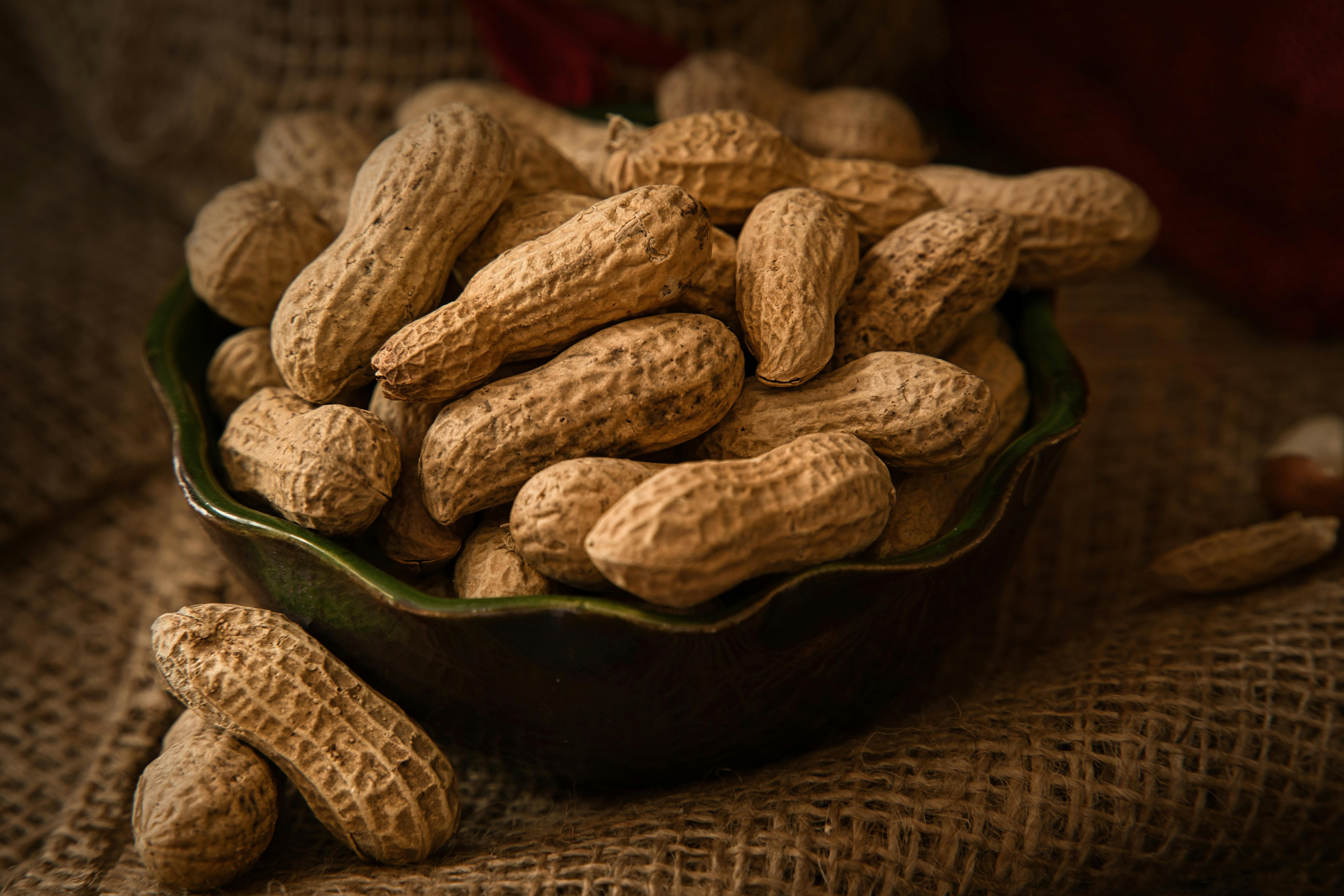
Nutritional Value: Peanut butter is a good source of protein, which plays a vital role in muscle maintenance and growth for dogs and supports their overall health.
Healthy Fats: Fueling Your Dog’s Energy
The fats in peanut butter are primarily unsaturated. These healthy fats are good for a shiny coat and healthy skin. Adding these fats can benefit your dog’s appearance and health.
Vitamins & Minerals: Essential Nutrients for Dogs
Peanut butter also contains important vitamins and minerals. It is especially rich in vitamins B and E, which help boost the immune system and improve cell health.
Portion Control: Moderation is Key with Peanut Butter
Key Peanut Butter Benefits: A Summary
- It is a source of protein, which is important for developing and maintaining muscles.
- It is a source of unsaturated fats that are good for the skin and coat.
- It is a good B and E vitamin source that enhances the immune system.
- A way of giving medicine to dogs since it is tasty.
Peanut Butter’s Health Perks: When Used Wisely
- Protein for muscle health
- Unsaturated fats for skin and coat
- B and E vitamins for immunity
- A tasty medium for administering medication
Given that peanut butter is an excellent way of making your dog happy and healthy, it is important to learn how to include it in the diet carefully.
Peanut Butter Side Effects & Precautions: Protecting Your Dog
Giving peanut butter to dogs is not without some dangers. Knowing the potential dangers is crucial so that you can help your pet.
One of the most important issues is xylitol, a sugar substitute that is toxic to dogs. People should always check whether the peanut butter they are purchasing is xylitol-free.
Another factor is the high salt content. A high amount of salt is also bad for dogs. When choosing a product, it is better to buy peanut butter with low amounts of salt.
Peanut butter is quite calorically dense and may contribute to obesity if eaten in large quantities. If the food is overfed, it can also lead to weight gain. Do not give your dog too many treats, and check its weight.
Some side effects of peanut butter in dogs include allergies or intolerance to peanut butter, which may cause them to develop digestive problems when they eat it. This may cause acute enteritis or intolerance. It is better to introduce it gradually and in small quantities.
Some products are dangerous for dogs. For instance, chocolate and raisins are poisonous to dogs. Plain and natural peanut butter should be used in the dog’s best interest.
Allergies & Sensitivities: Recognizing Warning Signs
Some dogs are allergic to peanut butter, which is worth checking for. However, the symptoms can be different from one dog to another.
Itchiness and skin issues are some of your dog’s symptoms. These may appear as rashes or hives on the skin. It is always good to know how your dog reacts to certain foods.
The digestive tract may also experience allergic reactions, including vomiting and diarrhea. If this happens, you should consult your vet.
Preventing Overindulgence: Peanut Butter Feeding Tips
Over consumption of any food, including peanut butter, has drawbacks. It is best to avoid it. Controlling the portion will reduce the risk of obesity.
Peanut butter is more calorie-dense, so consuming it in large quantities can lead to weight gain. It should not be more than 10% of the daily calorie intake.
Patronage can help control intake. You should know how many treats your dog takes and how many times a day. Peanut butter should be combined with the rest of your dog’s diet.
Monitoring can also be useful in determining the amount of food given to the dog at any given time. It is advisable to know how often your dog should be given treats and how much you should give to the dog at any given time. Peanut butter should not be given to dogs in large quantities but together with the rest of the diet.
Creative Ways to Serve Peanut Butter: Fun & Safe Ideas
Peanut butter is not just for sandwiches; there is more to it than that. It is available in different forms and can be used in different ways to feed your dog. You should make it more interesting for your dog to eat.
The first point is to use a Kong toy filled with peanut butter to keep the dog busy for some time. This is fun and also stimulates the dog mentally.
A good way to use frozen peanut butter is as a treat. Mix it with yogurt and then freeze it. Your dog will enjoy this cool treat during hot weather.
This section will help you understand how to make your dog’s food more palatable by coating the fruits and vegetables with peanut butter. This method is also excellent with apple slices or carrots. It will be a treat and healthy at the same time.
You should also try using peanut butter in homemade dog biscuits. It is used as a binder, and the food tastes better with it. Your dog will certainly have a fondness for these homemade treats.
Serving Suggestions: Peanut Butter for Your Dog
- Fill inside a Kong toy
- Apply some cream on top of the yogurt and freeze it
- Use it to coat apple slices or carrots
- Use in the preparation of dog biscuits
Homemade Peanut Butter Dog Treats: Healthy Recipes
Making some treats at home is easy. Peanut butter is among the most common ingredients in many dog treat recipes. Not only are these treats tasty, but they are also fun to make.
One of the easiest recipes is for peanut butter dog biscuits. The dough is made by combining peanut butter, flour, and eggs. Then, it is shaped into cookies and baked until golden brown.
The next recipe is for peanut butter and pumpkin balls. It uses a combination of canned pumpkin, oats, and peanut butter. The balls are then rolled into balls and frozen for storage.
For a chill treat, try frozen peanut butter yogurt bites. Blend banana, yogurt, and peanut butter in a blender. Pour into molds and freeze until solid.
If you are allergic to peanut butter, there are still other options for your dog. Many other safe foods can be given to dogs and offer the same benefits. Some of them are blueberries or bananas. These are low in cholesterol and high in vitamins and can be given to your dog in small quantities as part of a healthy diet. Also, if you want affordable yet quality treats, you should check out Petleafe coupons to find the best offers.
Carrots and green beans are another choice. They are crisp and low in fat. Most dogs enjoy these to satisfy their appetites and gain nutrients from their food. Consider giving fresh fruits like blueberries or bananas. These treats are low in calories and high in nutrients. They can be served in moderation for a balanced diet.
Vegetables like carrots and green beans are another choice. They offer crunch and are low in fat, and dogs often enjoy them as satisfying and nutritious snacks.
Alternative Dog Treats: Healthy Options Beyond Peanut Butter
- Blueberries
- Bananas
- Carrots
- Green beans
Switching up treats ensures your dog gets varied nutrients. Always introduce any new treats gradually. Consult your veterinarian for advice tailored to your dog’s specific needs.
Peanut Butter & Dogs FAQs: Your Top Questions Answered
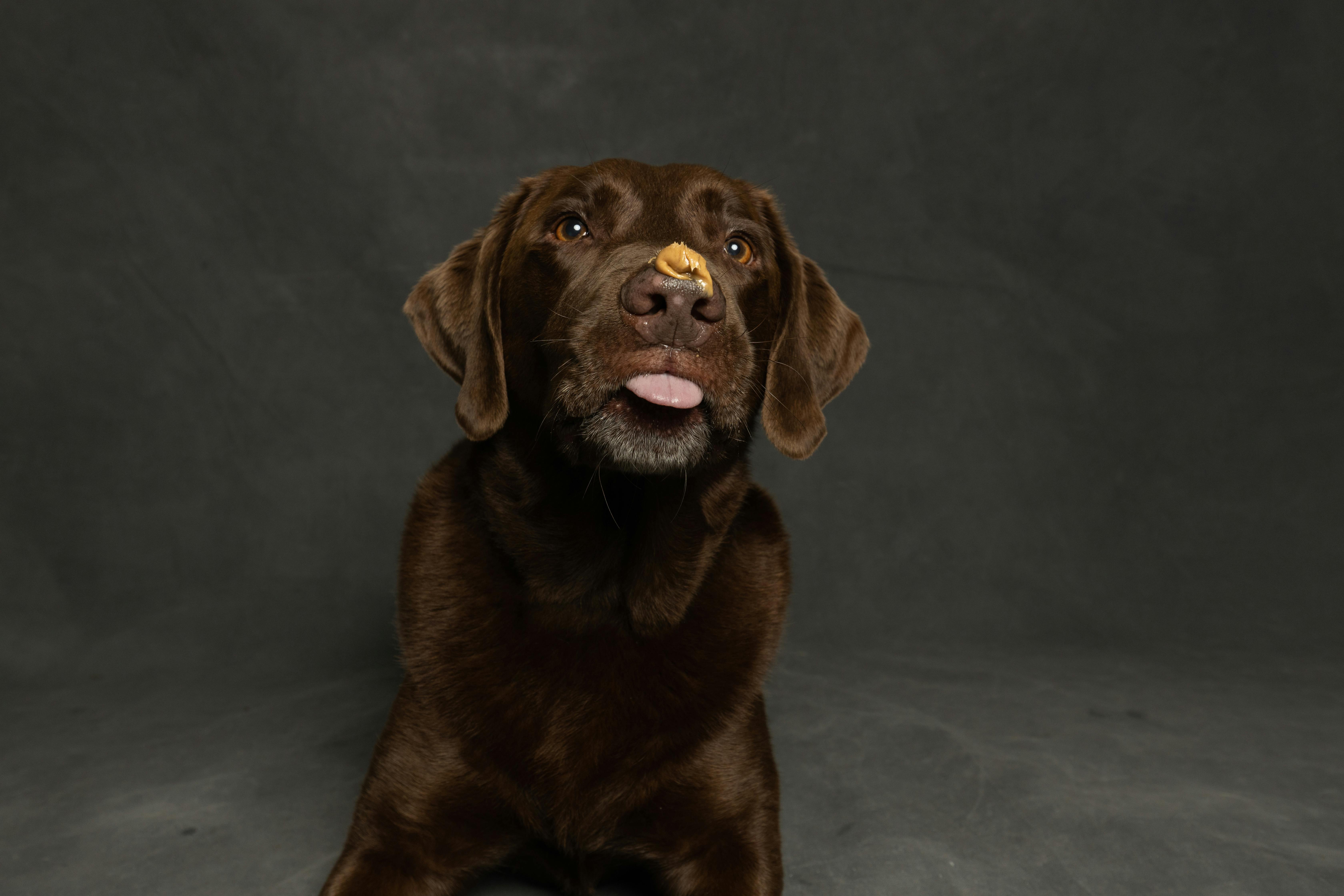
Peanut Butter Safety: Can Dogs Eat It?
Yes, dogs can eat peanut butter; however, some guidelines should be followed. Do not feed your dog peanut butter that has xylitol in it. Always check the label of the product.
Skippy Peanut Butter: Is It Safe for Dogs?
Skippy is generally okay if it does not contain xylitol. Always read the label first. If in doubt, try natural or organic brands with no or fewer additives.
Peanut Butter Allergies: Can Dogs Be Allergic?
Yes or No: Some dogs may have allergic reactions to it. Look for symptoms like itching or vomiting. If symptoms occur, do not use it again and seek the advice of a vet.
Peanut Butter Portions: How Much Is Too Much?
Moderation is best. Peanut butter should only be given to dogs occasionally. The high fat content can result in obesity or pancreatitis if consumed in large quantities.
Xylitol Ingestion: What to Do in an Emergency?
If your dog has consumed xylitol-containing peanut butter, contact a veterinarian immediately. Xylitol is toxic and needs medical treatment.
Peanut Butter for Dogs: A Safe Treat When Used Wisely
In conclusion, peanut butter is safe for dogs in moderation. It is a great source of fat and protein, so it can be added to their diet. But it is important to use the right kind of peanut butter for your dog.
Not all peanut butter is good for dogs. Xylitol should be avoided at all costs. Always read the label and avoid buying anything that contains xylitol. Instead, get natural or organic peanut butter with no extra additives.
It is important not to overfeed dogs as this can lead to health problems such as obesity. When given in the right quantity and with your dog’s health in mind, peanut butter can be a fun treat for them. Observing your dog and changing portions or frequency if needed is always important.
